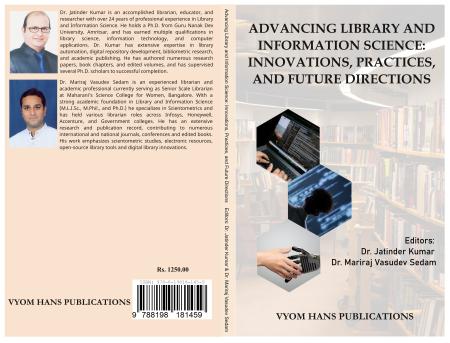SUSTAINABLE RESEARCH DATA MANAGEMENT: BALANCING LONG-TERM PRESERVATION WITH IMMEDIATE RESEARCH NEEDS
Synopsis
Sustainable Research Data Management (RDM) is crucial for ensuring that data generated through scientific research is both accessible in the short term and preserved for long-term reuse and discovery. As the volume and complexity of research data continue to grow, researchers and institutions face significant challenges in balancing immediate data needs-such as rapid analysis and dissemination-with the long-term goals of data preservation and integrity. This paper explores the principles and practices that underpin sustainable RDM, emphasizing the importance of planning, effective storage solutions, metadata and adherence to International standards such as the FAIR principles (Findability, Accessibility, Interoperability and Reusability). It examines the key challenges faced by researchers, including resource constraints, technological obsolescence and disciplinary variations and discusses strategies for overcoming these obstacles. The paper also highlights case studies that demonstrate successful approaches to RDM, showcasing how institutions and researchers can implement frameworks that serve both immediate and long-term research needs. Ultimately, this work calls for a comprehensive approach to RDM that ensures the longevity, accessibility and usability of research data for future generations.





